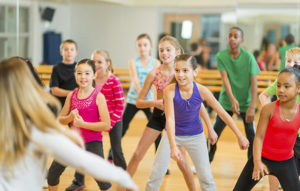I remember how scary the first day of high school was. High school was different than my first days at other schools. There were lots of other new kids but the school was also so much bigger, and the students seemed so much older! It was all very intimidating. On top of that, I felt like high school was finally “where it counted.” High school grades were the ones that universities would see, so even though I had moved across the country multiple times in the past, my first day of high school was one of the scariest days of school I ever had.
I was also in the situation of being the oldest child and I did not have any friends who were in the grade above me. As such, I did not really know what to expect, what to prioritize, and what to do in high school. Therefore, for those students who are just entering high school, or are continuing high school this fall, I would like to share some words of wisdom on how to make the most of those few years.
First and foremost, do your work! This is easily the most obvious and arguably the most important part of high school. Depending on where you go to school, the expectations for your punctuality will differ, but it’s always good to get work in on time. If you are really stressing over one assignment in particular, it is okay if it is not perfect. It is much better to hand something in than nothing at all (50% is a lot better than 0%). In addition, teachers will start to trust you if you consistently hand in your work, and may cut you some slack later in the term. For example, teachers will be more understanding if one assignment is in late if you have a good record of handing things in on time. Also, teachers may be more willing to offer you extra credit at the end of the term if you have been a good worker all semester!
Getting your work done will also help keep your parents happy, which is of utmost importance in high school. Especially now that some schools post marks online, it is easier than ever for parents to find out what is going on at school.
Finally, you are going to need study for at least some tests and exams. Sure, maybe you are great at history, but that does not make you an expert in quadratic functions. Figure out what study habits work best for you: whether you prefer rewarding yourself with snacks, doing practice questions, or studying in groups. Additionally, figure out what kind of pace works for you. Some people like studying over the course of weeks or even months. Other people like to cram, though even if you do cram, I recommend at least spreading out the studying over two or three days. DO NOT pull an all-nighter the night of an exam. Get your 8 or 9 hours of sleep the night before, and have a hearty breakfast. At the very least, have a glass of juice in the morning to get your blood sugar up.
2) Get to know your teachers
 This point is related to each of the other points in my list, and while it is not necessarily the most important piece of advice I have to offer, it has some very widespread benefits. Of course, you are not going to like all of your teachers. Some teachers can seem cold and unavailable and others just may not be the right fit for you. However, with several classes a year across multiple years of school, you are bound to get at least a couple of teachers you really like. You should get to know them! If they have lunchtime help sessions, go to those and ask questions. Stay after class to talk with them. Getting their cell phone number is probably a bit overboard, but you can get their email to keep in touch over the summer (or when you go off to work/college/university/etc.).
This point is related to each of the other points in my list, and while it is not necessarily the most important piece of advice I have to offer, it has some very widespread benefits. Of course, you are not going to like all of your teachers. Some teachers can seem cold and unavailable and others just may not be the right fit for you. However, with several classes a year across multiple years of school, you are bound to get at least a couple of teachers you really like. You should get to know them! If they have lunchtime help sessions, go to those and ask questions. Stay after class to talk with them. Getting their cell phone number is probably a bit overboard, but you can get their email to keep in touch over the summer (or when you go off to work/college/university/etc.).
I would like to also tell you why you should do this: first and foremost, teachers can be great mentors. Plus, a big reason they likely got into teaching was to help students and build relationships with them. Teachers have a lot more life experience – they have been through high school themselves and might even be able to help give you advice on high school life, such as friendships and relationships. Also, teachers have been to university so they can help guide you towards getting to college or university. They, along with your guidance counselor, know what steps you need to take in order to get there.
Many teachers are also involved with the school, and they also tend to talk with the other teachers at the school, or at least in their department. Consequently, they can point you in the direction of some extra-curricular activities.
As a final point, I’d like to point out that it’s worth getting to know not only your teachers, but also your guidance counselor, school administration, and other school staff. The more of these people you know, the more you will feel at home at school. Every staff member has their own unique experience to draw on, and they also have their own unique perspective to offer to you. I am not saying you should get to know everybody, although that is certainly something you can try to do. I am just saying get to know a couple of the staff members. They will be able to do you favors, and their classroom or office will be somewhere where you can go if you need.
3) Get involved
This was one of the trickiest for me to accomplish. In my freshman year, I was barely involved at all in extra-curricular activities at my school. By my senior year, I had tried (or was actively in) a good chunk of what my school had to offer. My point is that you do not have to be super involved in middle school to be involved in high school, and you do not have to be super involved in freshman year to be involved in senior year. Like the old saying goes, “The best time to plant an apple tree was 20 years ago. The second best time is now.”
 For those of you out there who are really focused on getting into college or university, extra-curricular activities are amazing for your college application. Where I went to university, good extra-curricular activities could boost your applying average by several percentage points. This is because extra-curricular activities show colleges that you are an involved student, which colleges like because you will be more likely to contribute to their school, and thus boost their reputation.
For those of you out there who are really focused on getting into college or university, extra-curricular activities are amazing for your college application. Where I went to university, good extra-curricular activities could boost your applying average by several percentage points. This is because extra-curricular activities show colleges that you are an involved student, which colleges like because you will be more likely to contribute to their school, and thus boost their reputation.
Extra-curricular activities are also beneficial in many other ways, such as keeping students busy and out of trouble. If you have school until 3:30 and then football practice from 4:00 until dark, you really do not have a lot of time to get into trouble. Extra-curricular activities are also a great way to meet people – staff and students. The more diverse your interests, the better, but even the social circles of different sports teams can be significantly different. I personally always liked team sports because of the social aspect and the camaraderie. It was a teammate of mine that suggested I ask out my first girlfriend. I got invited to parties because of people I knew through extra-curricular activities too. Getting involved outside of the classroom was extremely socially enriching.
The other great thing about extra-curricular activities is that there are so many different kinds! My high school had just under a thousand students, and we must have had dozens of different extra-curricular activities. There were activities for extroverts and introverts alike, and there were long-term activities with big commitments as well as short-term activities with little to lose.
You would be amazed at the other benefits that they provide. You get to see what goes on behind the scene at the high school and help shape which direction your school goes in. When I was in student council in my senior year, we held a winter semi-formal dances. We made well over a thousand dollars, and since we had not had a winter semi-formal dance in several years, we hopefully set a precedent for future years. Plus, we got to help out our local community by donating some of the proceeds to charity. (By the way, stuff like that looks good on college applications!)
4) Try new things!
 At this point in your life, high school is so far the place where you have the most freedom. In high school, many people achieve a lot of “firsts” in their lives: their first romantic relationship, their first car and driver’s license, their first formal dance or prom, their first job or volunteer opportunity, and/or their first time choosing their own courses.
At this point in your life, high school is so far the place where you have the most freedom. In high school, many people achieve a lot of “firsts” in their lives: their first romantic relationship, their first car and driver’s license, their first formal dance or prom, their first job or volunteer opportunity, and/or their first time choosing their own courses.
I recommend doing as many new things in high school as you can handle while still staying on top of your academics. It will help you grow as a person, and it may even open up some future opportunities for you. For instance, some jobs will have scholarship programs that are worth looking into. (As an aside, when applying for scholarships, don’t be shy! Even if you do not meet all of the qualifications for a scholarship, you should still apply. It may turn out that you are the only applicant.) Some ideas for new things to try are: getting a job, becoming a volunteer at school or in your community, taking driving lessons and getting your license, joining a school sports team or a community sports team, or joining a school club or a community club. These are all great ways to meet people and make friends, as well as find mentors. Some of these opportunities even allow you to be a mentor to younger students. For example, as a senior on the football team, you get the chance to be a role model for freshmen and sophomores.
Trying lots of new, different things will be hard on your schedule, but you will learn to manage your time effectively. Additionally, people will tend to help you out because they will respect that you are legitimately crunched for time. Still, you should make sure not to put too much pressure on yourself and get really stressed out. It can be easy to sign up for too many commitments, but it is simultaneously even easier to let yourself do nothing. What I’m trying to say is that you should definitely go for it and try new things, but remember that you can always back out after a few days. Nobody will blame you for being a quitter, and even if they do, those are not people worth listening to. Find a good balance between being busy and being overwhelmed.
As a final note, I would like to remind you that you don’t have to go through high school alone. There are people there to support you along the way. Friends, family, and school staff can all be amazing supports – financially, emotionally, and otherwise. If you are scared to join a club or a team, sign up with a friend. It will make it easier and you will at least know somebody. If you need help with managing your time, choosing courses, or applying for scholarships, your parents, older siblings, and guidance counselor can all be big helps. If you are going through a bad breakup, failed a test, or crashed your parents’ car, it is okay and you will be forgiven. That is part of growing up.
SchoolTutoring Academy is the premier educational services company for K-12 and college students. We offer tutoring programs for students in K-12, AP classes, and college. To learn more about how we help parents and students in Chicago, IL visit: Tutoring in Hurricane, UT.




